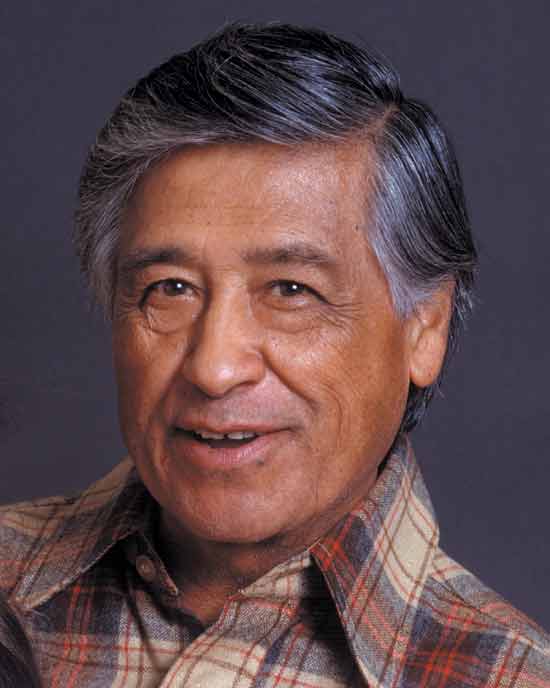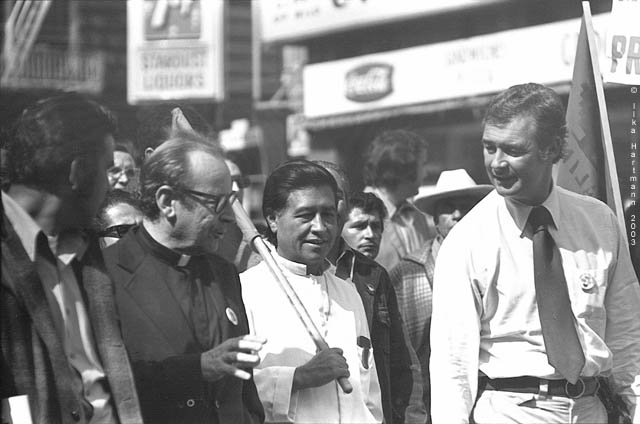Cesar Chavez

César Estrada Chávez (March 31, 1927 – April 23, 1993) was a Mexican American farm worker, labor leader, and civil rights activist who, with Dolores Huerta, co-founded the National Farm Workers Association, which later became the United Farm Workers (UFW). Supporters say his work led to numerous improvements for union laborers. His birthday has become César Chávez Day, a state holiday in eight US states. Many parks, cultural centers, libraries, schools, and streets have been named in his honor in cities across the United States.Later in life, César focused on his education. The walls of his office in Keene, California (United Farm Worker headquarters) were lined with hundreds of books ranging in subject from philosophy, economics, cooperatives, and unions, to biographies of Gandhi and the Kennedys. He was a vegan.He is buried at the National Chavez Center, on the headquarters campus of the UFW, at 29700 Woodford-Tehachapi Road in the Keene community of unincorporated Kern County, California. There is a portrait of him in the National Portrait Gallery in Washington, DC.



